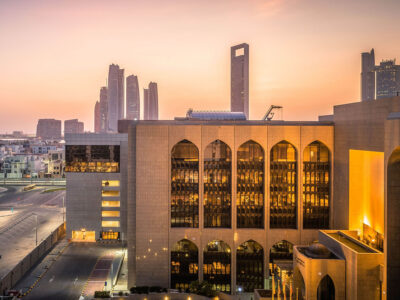The world’s largest oil exporter, Saudi Arabia, is stepping up to the global plate in the fight against climate change, pledging net zero emissions by 2060, but the country’s Investment Minister warned that the transition won’t be immediate.
“We’re going to have to deal with carbon for decades to come. Maybe one day we will not need it, with the technology and the infrastructure and investment through public private partnerships, but during that transition, we have to continue to invest in a balanced energy portfolio,” Khalid bin Abdulaziz al-Falih, Saudi’s Minister of Investment said at the fifth edition of the Future Investment Initiative (FII) Institute conference in Riyadh on Tuesday.
To meet global carbon reduction pledges, private investment and regulation, like the introduction of carbon pricing, is needed. Further, money being fuelled into environmental, social and governance (ESG) investing schemes needs to be funnelled into the dirtiest industries, rather than industries with low-energy footprints that are easy wins for ESG investors.
“I’m afraid that we talk so much about renewables and that we put so much money into assets that never happen. ESG money should be going right into those companies that are providing food, energy and steel and cleaning that up. It’s very difficult without a price on carbon,” said Lynn Forester de Rothschild, co-founder and managing partner, Inclusive Capital Partners.
Part of the conversation needs to be restructuring the social contract, which Forester said the former contract of “reduce government, give it all to the market” isn’t working anymore.
“That mindset of a small government and an active free market led to problems [including] massive levels of inequality and degradation of the planet,” she said. “We have to rethink the social contract, and I think it begins by rethinking our view of government.”
There is an estimated trillion-dollar gap needed to fill ESG financing, and the private sector is needed to fill this gap, but policies have to encourage investment.
“Government and business need to work together, and government needs to understand better how it can leverage the market,” she said.
Invaluable commentary from Lady Lynn Forester de Rothschild, Founding & Managing Partner, Inclusive Capital Partners during "The Evolving Role of Business and Government" session at #FII5. #ImpactOnHumanity pic.twitter.com/FKn4UcG7Vd
— FII Institute (@FIIKSA) October 26, 2021
Al-Falih pointed to the kingdom’s economic diversification agenda, Vision 2030, that has been tied together with the country’s investment strategy as an example of how the two entities can work together to drive change.
“It’s not just climate change but healthcare and how do we create the preventative measures for the next equivalent of the pandemic?” he said.
Saudi Arabia has a massive youth population and an unemployment rate that hovers around 12 percent. Ensuring the youth have jobs and lowering unemployment are two of the kingdom’s key challenges, as well as reducing the kingdom’s reliance on oil as making up the bulk of the state’s revenue.
“Part of the social contract is preparing youth for jobs. The private sector has to take risks, whether in Saudi Arabia, or anywhere else,” al-Falih said. “We’re transitioning from an oil [economy] to the private sector. I don’t see them [the youth] as a burden, I see them as a resource.”





